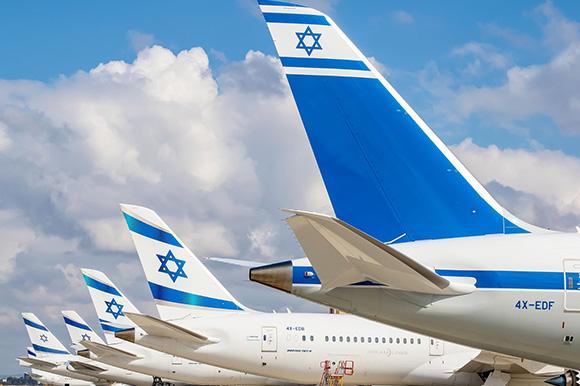
El Al Israel Airlines is in talks with Airbus to order up to 30 A321neos to replace its Boeing 737-800/900 fleet, El Al CEO Dina Ben Tal Ganancia said during the carrier’s second quarter presentation in Tel Aviv.
El Al, established in 1948, has been a loyal Boeing customer from the start, operating nearly all the OEM’s types: the 707, 720, 737-200, 737NG, 747, 757 and 767, including several variations of each as well as several freighter aircraft. A decision in favor of Airbus would be an historic change—it can be expected that Boeing will prepare a counteroffer.
The carrier plans to replace 24 737-800/900s—which have an average age of 19 years—and may increase its narrowbody fleet to 28-31 aircraft by 2028. A decision likely would be made early in 2024, and the carrier is negotiating with both OEMs.
El Al launched its narrowbody fleet replacement campaign in April and also invited engine manufacturers. The airline is also in talks with Boeing regarding the 737 MAX, the CEO told Reuters on the sidelines of the conference.
The Israeli carrier also unveiled a new five-year strategic plan that should grow the fleet from 46 aircraft to 59 by 2028. The company said in an Aug. 10 statement that it intends to bring back into service most of the aircraft currently not in use until the end of 2024. According to the Aviation Week Network Fleet Discovery database, two 737-800s and three 777-200s are in storage.
Meanwhile, a retrofit process has begun on some of the 777s to align the aircraft with the 787 comfort experience. The first retrofitted 777 began operations in August and three additional aircraft will be phased in by year-end. The four 777-200s were built in 2001, 2002 and 2007. El Al plans to operate a fifth 777 in 2024.
In July, El Al received its 16th 787, and the delivery flight was powered by about 30% sustainable aviation fuel, the first use of biofuel for the carrier. The airline said it expects to receive an additional 787 purchased from Boeing in the second quarter of 2024. The 787-8/787-9 fleet should reach a size of 22 aircraft by 2028.
Ganancia, who became CEO in May 2022, told Aviation Daily at the sidelines of the IATA AGM in June in Istanbul that the opening of new air routes—enabled with overflight permission from Saudi Arabia and Oman—allows the carrier to expand its network farther, such as to Asia and to Australia.
This year, El Al launched flights to Istanbul, Dublin and Tokyo and expects to add Mumbai, India, and Fort Lauderdale, Florida. In the last 12 months, the airline transported 5.2 million passengers with 47 aircraft to 59 destinations and a load factor of 86%.
El Al recorded a net profit of $59 million for the 2023 second quarter (Q2) versus a loss of $16.7 million for the same period a year earlier. Revenue increased 22% to $630 million from $516 million in Q2 2022.
The carrier said that for 2028, when the fleet should be at 59 aircraft, it is targeting $3.5 billion in annual revenue and 7.7 million passengers, including a 24% market share at its Ben Gurion International Airport hub.
